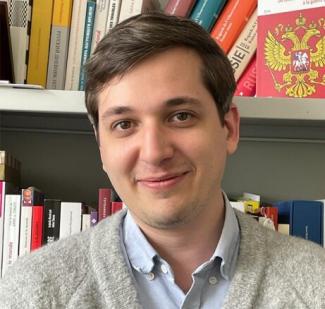Dimitri Minic: 'The Russian army is influenced by beliefs that detaches it from objective reality'
According to the researcher, the failure of the Russian army in Ukraine is the result of the implementation of a theory that emerged in the 2000s, which places a central focus on 'psychological-informational' warfare rather than armed combat.
Dimitri Minic, a researcher at the Institut Français des Relations Internationales, a think tank dedicated to international affairs, and an expert on the Russian army, analyzes in his book Pensée et Culture Stratégiques Russes: Du Contournement de la Lutte Armée à la Guerre en Ukraine ("Russian Strategic Thought and Culture: From Bypassing Armed Combat to the War in Ukraine") the theoretical and doctrinal factors that led the Russian army into a deadlock in Ukraine.
What is the circumvention theory of armed struggle, which gradually gained ground in the Russian army from the 2000s onward?
In the early 1990s, Russian military theorists began to emphasize the importance of non-military, and indirect military, means and methods to achieve decisive political objectives. According to them, not only is armed struggle no longer a requirement to achieve success, but, if it were, it would only play a limited and ultimate role in war. This has led to the exploration of specific concepts and tools: information warfare, indirect and asymmetric tactics, the use of informal armed formations, special forces operations, strategic deterrence, and so on. All of these elements are collectively referred to as "hybrid warfare" in the Western context, although this term is sometimes used too broadly.
> Read the whole article on Le Monde's website
> Read the French version of the article.

Media:
Share







